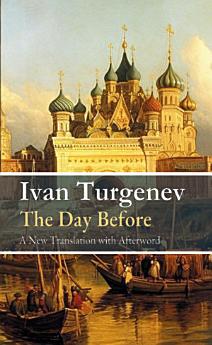Published in historically as "On the Eve", this novel (written in 1860) is set on the eve of momentous events – specifically, in the summer of 1853 just before the Crimean War and, symbolically, on the brink of social upheaval in Russia. The plot follows Elena Stakhova, an intelligent and idealistic young Russian woman who feels stifled by her banal gentry milieu. Elena’s yearning for purpose is answered when she meets Dimitry Insarov, a passionate Bulgarian revolutionary emigre whose dedication to his country’s freedom ignites her own moral passion. Elena and Insarov fall in love, and she defies her family to support his cause, marrying him. Their romance is tragically cut short when Insarov falls ill and dies (against the backdrop of war breaking out). Elena disappears, presumably to carry on his mission. Through Elena’s fate, The Day Before explores the “love in time of war and revolutionary social change”, with Elena and Insarov’s union serving as an allegory for Russia’s imminent epoch of reform.This edition, favoring a more literal translation of the original title, presents a modern translation of the original manuscript, crafted to help the reader engage directly with Turgenev's works through clean, contemporary language and simplified sentence structures that clarify his complex ideas. Supplementary material enriches the text with autobiographical, historical, and linguistic context, including an afterword on Turgenev’s history, impact, and intellectual legacy highlighting the personal relationships that shaped his philosophy (focusing on Dostoevsky, Tolstoy and Gogol), an index of the philosophical concepts he employs (emphasizing Realism and Nihilism) a comprehensive chronological list of his published writings, a brief biography, and a detailed timeline of his life.











